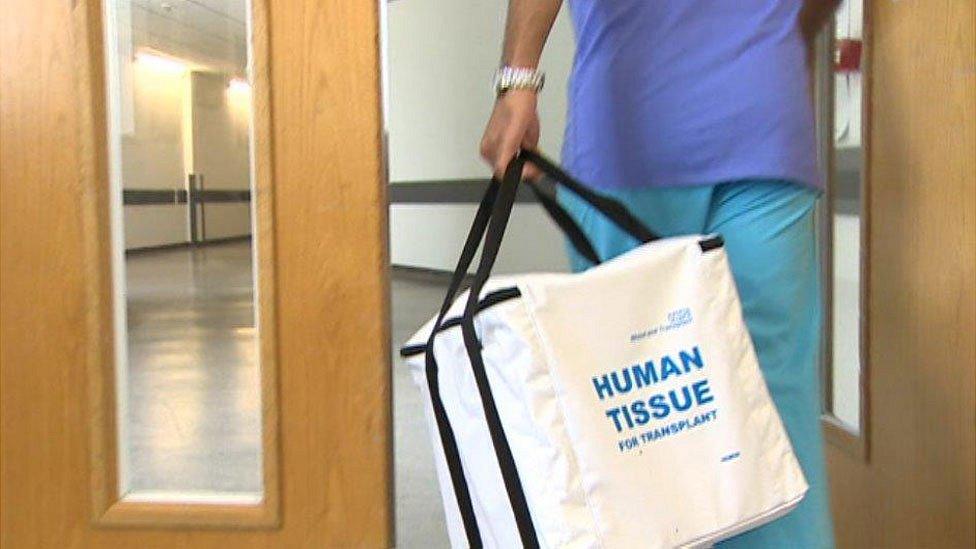Kimberly Chard's 'thank you' to organ transplant family
- Published
In hospital - Kimberly Chard talks before and after the transplant operation
A woman who had a double-lung transplant last Christmas has written an emotional thank-you letter to her donor's family - as Wales marks the anniversary of a major new law.
On 1 December 2015, Wales became the first nation in the UK to introduce "deemed consent" for organ donations.
Under what is known as a soft opt-out, people who are over 18 in Wales are regarded as having consented unless they register otherwise.
A keen supporter of the new system, Kimberly Chard, who has cystic fibrosis, had her new lungs last December.
BBC Radio 5 live has been following her progress since she was on the waiting list for a transplant.
She said she is hoping if her donor's family are able to read her letter, they can feel proud of what she is achieving.
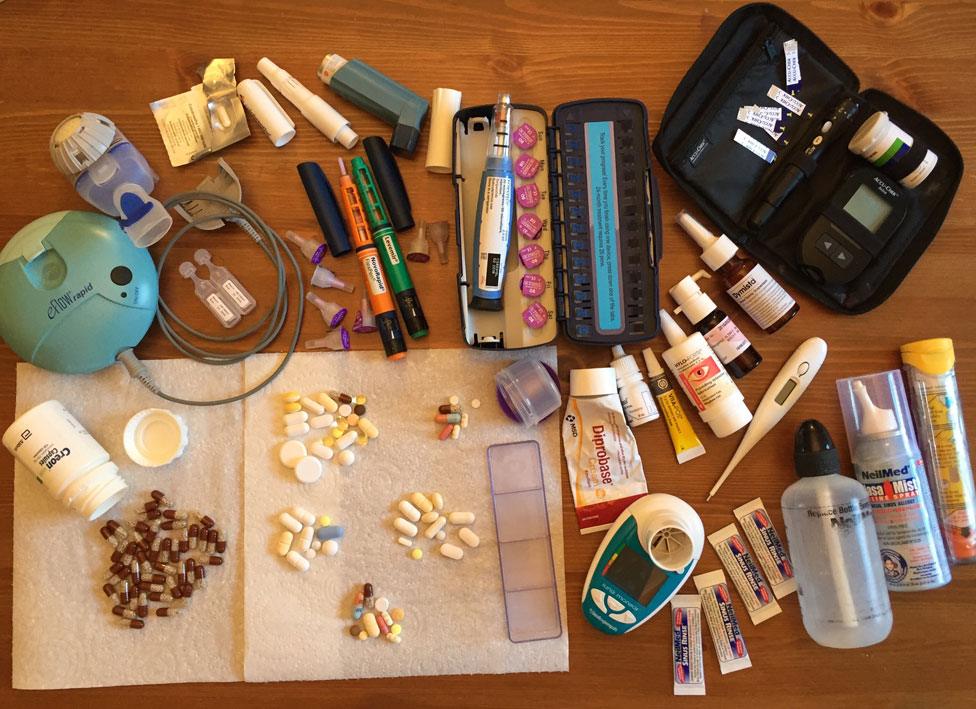
Kimberly Chard is still on an array of medication
Ms Chard, 32, and from Bargoed in Caerphilly county, has monthly check-ups at Llandough Hospital near Cardiff and regular visits to Harefield Hospital near London, where her surgery took place.
She still takes about 100 tablets a day to counter the effects of her transplant and her cystic fibrosis but is now able to resume work as a fine artist. She is taking part in a charity exhibition in Cardiff to raise funds to expand the All Wales Cystic Fibrosis Centre at Llandough.
Dr Ian Ketchell is the centre's director and Kimberly's consultant.
He told BBC Radio 5 live: "I came here 11 years ago. In the 10 years before that, there had been one transplant. Eight patients died in my first year.
"It's uncommon for us to lose a patient now. The majority of our patients are 'transplanters'. Looking at Kim now, that's why we do it. And that's why it's worth it."
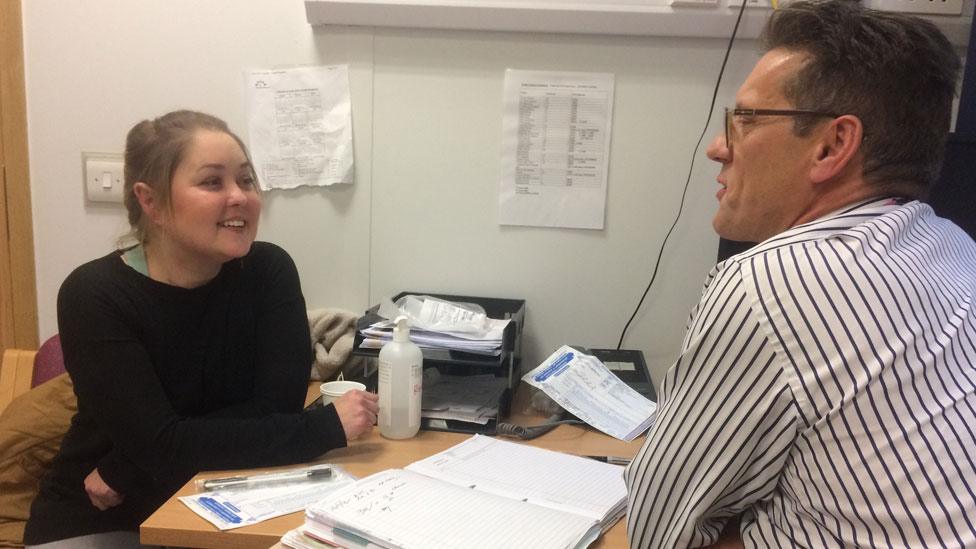
Ms Chard with Dr Ian Ketchell
Dr Ketchell is not sure how much the law change in Wales will affect the numbers of transplants over the years but said it had already brought about greater awareness.
And he revealed how his own family experience in the past year had affected him.
"I recently lost a relative. We'd never really talked about transplantation. Most organs could not be used for transplant. I thought, what about corneas?
"We had a letter a few months ago to say there'd been a successful corneal transplant and somebody had re-gained sight. I can tell you now that made me burst into tears - and I deal with life and death on a daily basis.
"That's why people need to talk about it. And this new law will make people talk about it."
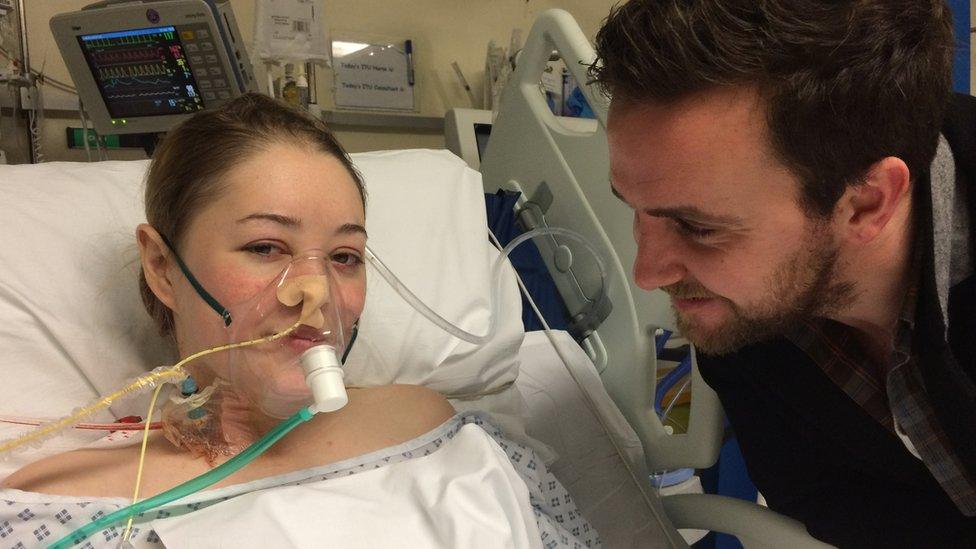
Back in January, Ms Chard with her husband Luke in recovery at London's Harefield Hospital
Ms Chard still has good days and bad days but is now far more active than she was before the transplant.
"It was the only option for me. I didn't have much time left. Beforehand you're dealing with the fact that if the transplant doesn't come, you're going to leave your family. You don't think about yourself. So you have to be strong, so they'll be strong in case you don't get a transplant.
"Now I feel more pressure because I've been given a new lease of life, a few more years. It's not just my family who are going to lose out if something happens. I suppose I'm a little bit more scared now of the fact that I could lose out as well."
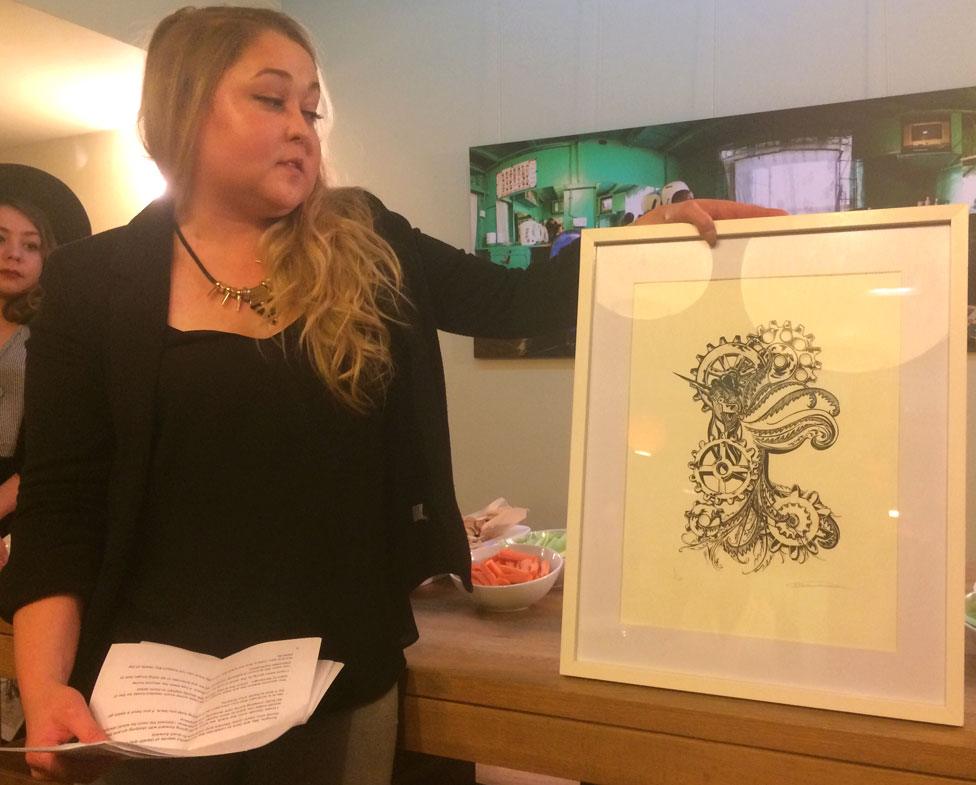
Kimberly with one of her art works
But she is determined to make the most of the chance she has been given.
"Before, I had to watch the world go by. Now I am able to join in."
She is unaware of the identity of her donor but through her transplant co-ordinator has passed on a message of thanks.
"I want to make my donor family proud of me, in a way. I've written a letter to them.
"It's totally up to them if they're ready to read it or not. They can decline it and it will always be there for when they are ready. But I have written to them to let them know how much it meant to me - what they gave."
Kimberly Chard will also be one of those telling their stories in a three-part documentary, The Greatest Gift, starting on 6 December on BBC One Wales at 22:40.
- Published1 December 2015
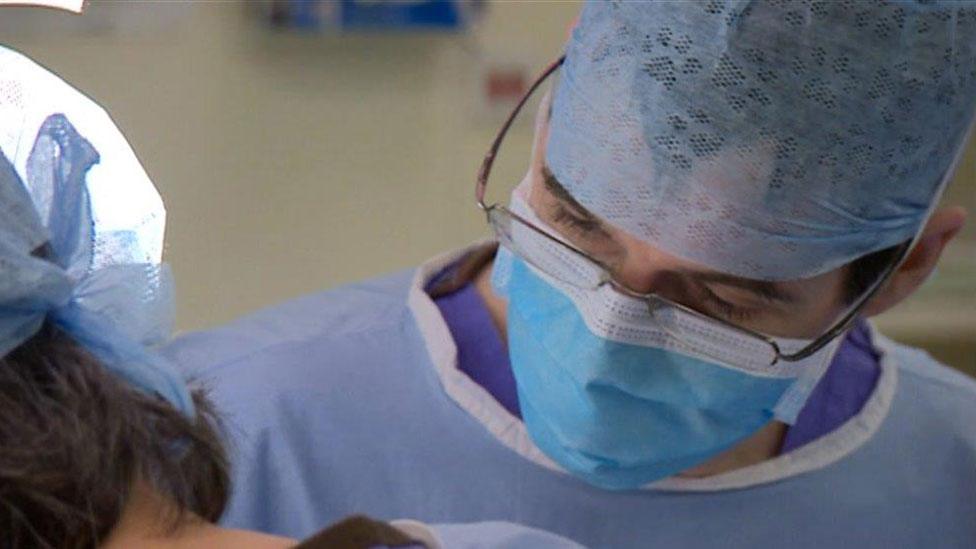
- Published1 December 2015
